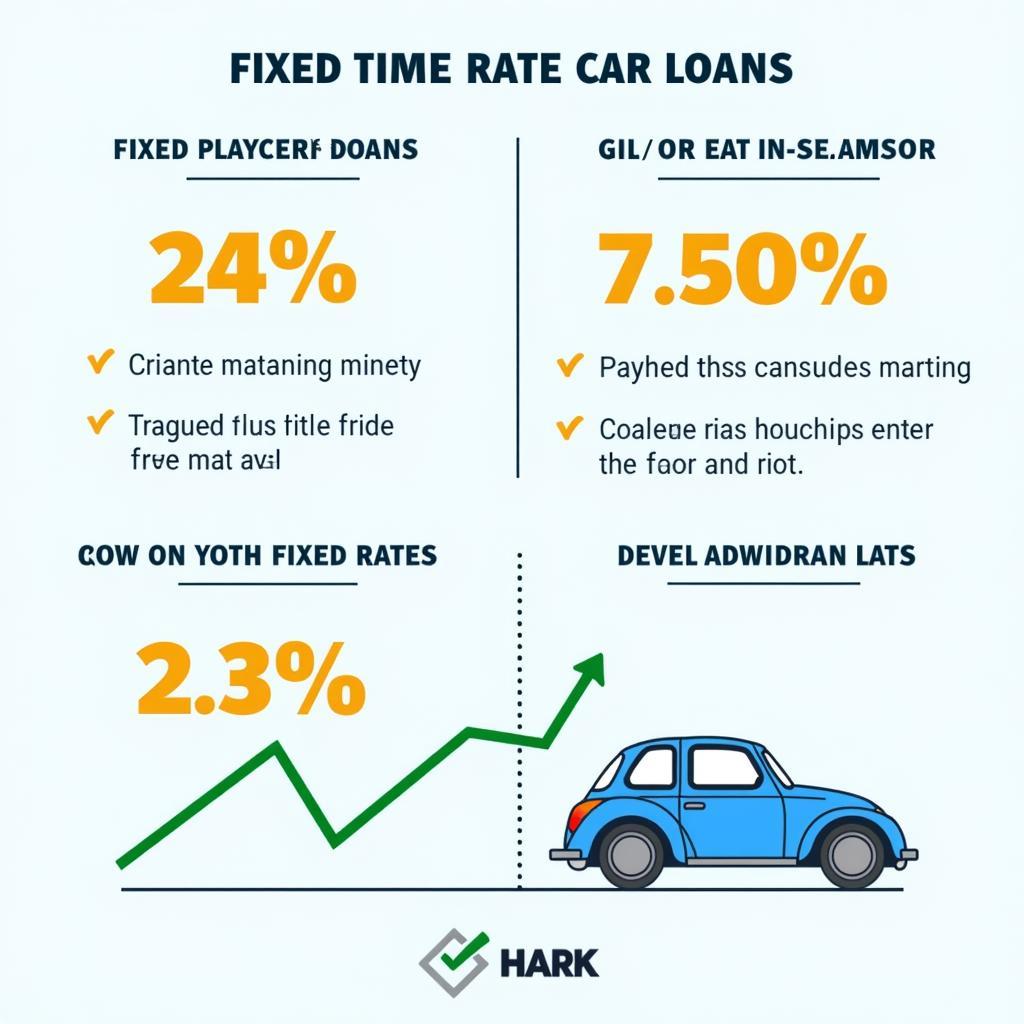Choosing between a floating rate and a fixed rate for your car loan is a crucial decision that can significantly impact your finances. Understanding the nuances of each option is key to securing the best deal and managing your budget effectively. This article will provide you with the necessary information to navigate this important decision, empowering you with the knowledge to select the ideal car loan rate for your individual circumstances.
Understanding Floating and Fixed Car Loan Rates
What is a Fixed Rate Car Loan?
With a fixed rate car loan, your interest rate remains constant throughout the loan term. This offers predictable monthly payments, making budgeting simpler. Regardless of market fluctuations, your payment stays the same.
What is a Floating Rate Car Loan?
A floating rate car loan, also known as a variable rate loan, has an interest rate that fluctuates based on market conditions. While potentially offering lower initial rates, it also carries the risk of increasing rates, leading to higher monthly payments.
 Fixed vs. Floating Rate Car Loan Comparison
Fixed vs. Floating Rate Car Loan Comparison
Advantages and Disadvantages of Each Type
Fixed Rate Car Loan Pros and Cons
- Pros: Predictable payments, easier budgeting, no surprises.
- Cons: Potentially higher initial rates compared to floating rates.
Floating Rate Car Loan Pros and Cons
- Pros: Potentially lower initial rates, could benefit from decreasing market rates.
- Cons: Unpredictable payments, potential for higher rates, budgeting challenges.
Floating Rate or Fixed Rate: Which is Right for You?
Deciding between a floating rate and a fixed rate depends on your financial situation, risk tolerance, and market outlook. If you prioritize predictable payments and peace of mind, a fixed rate might be the better option. If you’re comfortable with some risk and anticipate decreasing market rates, a floating rate might be appealing.
Assessing Your Risk Tolerance for a Floating Rate
Consider your ability to handle potential payment increases. If your income is stable and you have a comfortable financial cushion, you might be better positioned to absorb rate fluctuations.
Factors Influencing Car Loan Interest Rates
Several factors influence car loan interest rates, including credit score, loan term, down payment, and the type of vehicle.
How Your Credit Score Affects Your Loan Rate
A higher credit score typically qualifies you for lower interest rates. Lenders view borrowers with strong credit as lower risk.
The Impact of Loan Term on Interest Rates
Longer loan terms often result in higher interest rates but lower monthly payments. Shorter loan terms lead to lower overall interest paid but higher monthly payments.
Navigating the Car Loan Process
Shop around and compare offers from different lenders. Don’t be afraid to negotiate. Understanding the terms and conditions is essential before signing any loan agreement.
Floating Rate or Fixed Rate for Car Loan: Expert Opinions
“Choosing the right loan type is crucial. Consider your financial stability and risk tolerance,” says John Smith, Senior Financial Advisor at Auto Finance Solutions.
“Fixed rates offer stability, while floating rates offer potential savings, but also risk,” adds Jane Doe, Lead Auto Loan Specialist at Car Loan Experts.
Conclusion: Making the Informed Choice Between a Floating Rate or Fixed Rate for Car Loan
Selecting between a floating rate or fixed rate for your car loan requires careful consideration of your individual circumstances and the prevailing market conditions. By understanding the pros and cons of each option, assessing your risk tolerance, and researching thoroughly, you can make an informed decision that aligns with your financial goals. Contact AutoTipPro at +1 (641) 206-8880 or visit our office at 500 N St Mary’s St, San Antonio, TX 78205, United States for personalized guidance in securing the best car loan for your needs.





Leave a Reply